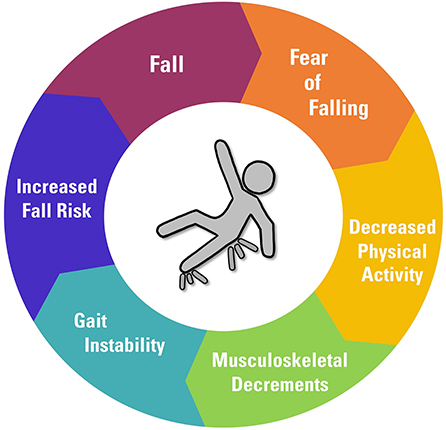The Only Guide for Dementia Fall Risk
The Only Guide for Dementia Fall Risk
Blog Article
Not known Details About Dementia Fall Risk
Table of ContentsThe Only Guide to Dementia Fall RiskRumored Buzz on Dementia Fall RiskGetting The Dementia Fall Risk To WorkIndicators on Dementia Fall Risk You Need To KnowDementia Fall Risk - Questions
In the community, inadequate road illumination or unguarded creeks and garbage dumps might also create crashes. Falls Threat Evaluation Device (FRAT) is a 4-item falls-risk screening tool for sub-acute and domestic treatment. The FRAT has three areas: fall risk standing, danger aspect list, and activity strategy. An Autumn Threat Status includes information concerning background of recent drops, medications, psychological and cognitive standing of the individual.If the client scores on a danger factor, the equivalent number of factors are counted to the individual's autumn danger score in the box to the far. If an individual's loss risk score completes five or higher, the person goes to high threat for falls. If the individual ratings only 4 points or lower, they are still at some danger of falling, and the nurse ought to utilize their ideal professional evaluation to take care of all autumn risk elements as component of a holistic care plan.
These standard techniques, generally, assist establish a safe environment that lowers unintended falls and marks core preventive procedures for all clients. Indicators are important for individuals in jeopardy for falls. Doctor need to recognize who has the problem, for they are in charge of executing actions to advertise person safety and stop drops.
More About Dementia Fall Risk
For example, wristbands ought to include the individual's last and very first name, day of birth, and NHS number in the UK. Details ought to be printed/written in black against a white history. Just red shade needs to be used to signal unique person standing. These referrals follow existing advancements in client recognition (Sevdalis et al., 2009).
Items that are too much may need the client to connect or ambulate needlessly and can possibly be a threat or add to drops. Helps protect against the individual from heading out of bed without any aid. Registered nurses react to fallers' telephone call lights faster than they do to lights initiated by non-fallers.
Visual problems can substantially trigger falls. Hip pads, when put on correctly, might minimize a hip fracture when autumn takes place. Maintaining the beds closer to the floor decreases the threat of drops and severe injury. Placing the bed mattress on the floor dramatically minimizes loss risk in some healthcare settings. Reduced beds are designed to reduce the range a patient falls after relocating out of bed.
The Ultimate Guide To Dementia Fall Risk
Clients who are important site tall and with weak leg muscle mass that try to rest on the bed from a standing setting are most likely to drop onto the bed since it's too reduced for them to reduce themselves securely. Additionally, if a high client attempts to obtain up from a reduced bed without help, the person is likely to drop back down onto the bed or miss out on the bed and fall onto the flooring.
They're developed to advertise timely rescue, not to avoid falls from bed. Aside from bed alarm systems, boosted supervision for high-risk individuals additionally may assist stop falls.

People with a shuffling gait boost fall opportunities dramatically. To reduce loss risk, footwear ought to be with a little to no heel, thin soles with slip-resistant walk, and support the ankles.
The Basic Principles Of Dementia Fall Risk
In a study, homes with ample illumination record fewer falls (Ramulu et al., 2021). Enhancement in lighting at home may decrease fall rates in older adults.

Sitters are reliable for ensuring a safe, secured, and safe setting. Research studies demonstrated really low-certainty evidence that caretakers decrease fall risk in severe treatment healthcare facilities and just moderate-certainty that options like video clip monitoring can minimize sitter use without enhancing fall threat, suggesting that caretakers are not as visit this page helpful as originally thought (Greely et al., 2020).
Some Known Questions About Dementia Fall Risk.

Raised physical conditioning reduces the danger for falls and restricts injury that is sustained when autumn takes place. Land and water-based workout programs might be similarly beneficial on balance and gait and therefore reduce the danger for drops. Water workout might contribute a favorable benefit on equilibrium and gait for women 65 years and older.
Chair Increase Exercise is a simple sit-to-stand exercise that helps enhance the muscular tissues in the thighs and butts and enhances flexibility and self-reliance. The objective is to do Chair Rise workouts without using hands as the client comes to be more powerful. See resources area for a detailed direction on just how to perform Chair Increase workout.
Report this page